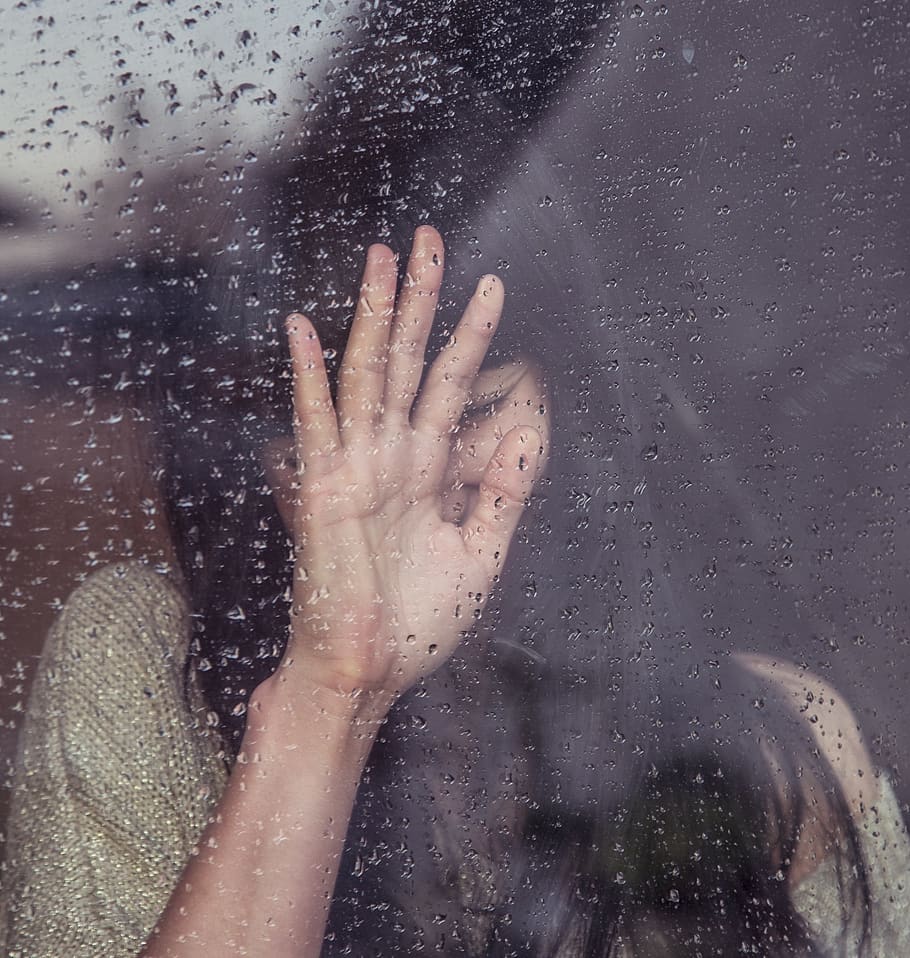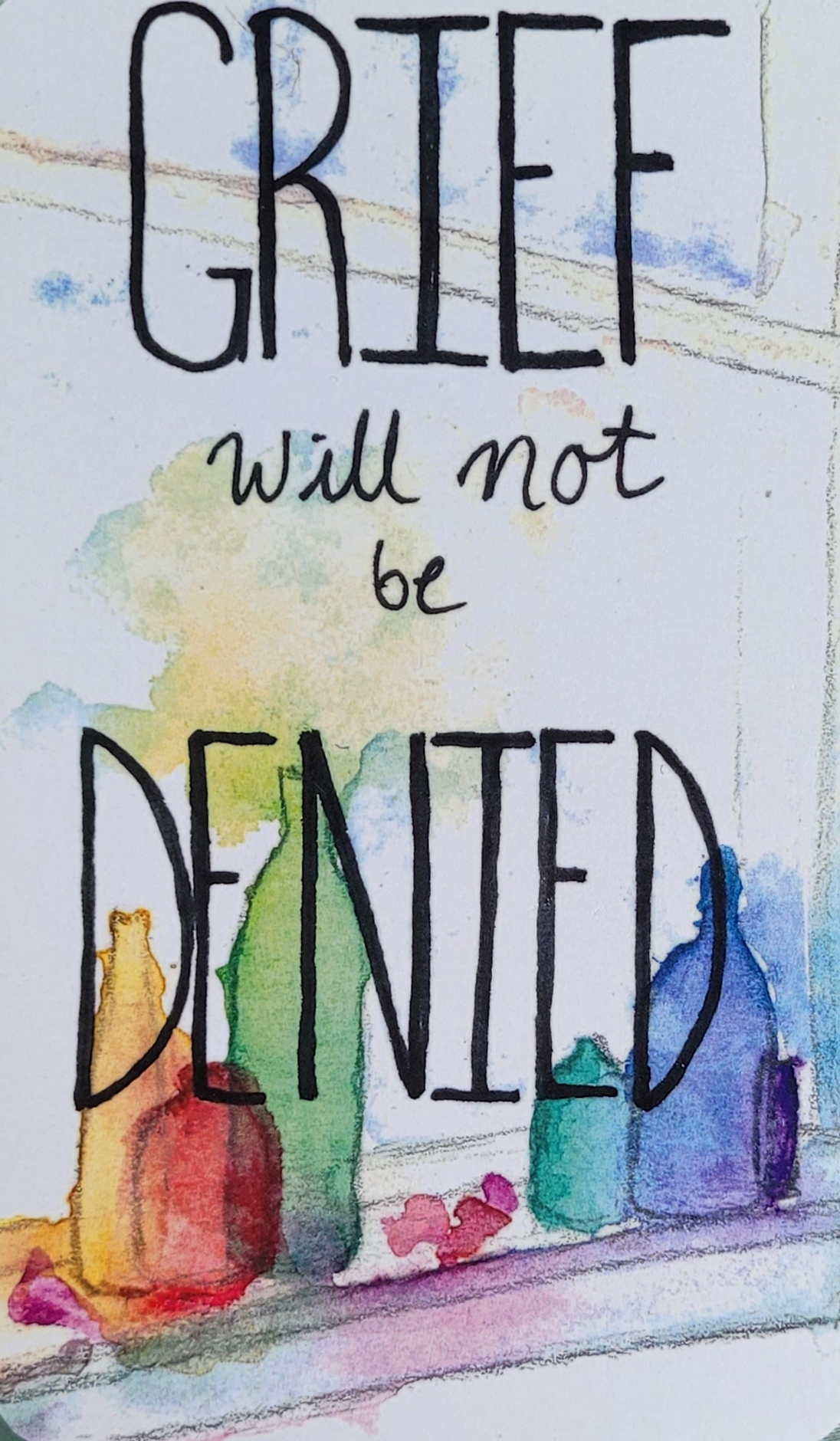Will you let your heart break and have its rightful place?
May 26, 2022
by Anne O'Connor
I remember the first school shooting that shook me to my core—Columbine in 1999. It was the first "big one" in modern history. I heard the news and my heart raced, my mind stopped working, and I was distraught in that discombobulated way: I didn’t know how to be in my own body.
I called my brother—a primary anchor in my life—and we cried and were silent together sitting on the phone for a long time—just being in grief and despair.
I tell you about my response not because my grief is particularly unusual or interesting, but precisely because it’s so very ordinary. I have had nothing to do directly with any school shootings and yet their impact on my life has been profound.

Grief hangs in our midst as a constantly-present reality. It can show up as sadness or anger or irritation or distrust or shutdown. However grief shows up—this pain of loss is part of our lives. If we want to be emotionally healthy people, we must acknowledge and process the grief in our lives.
These past two weeks grief has hit us hard again with the racist shooting in Buffalo, NY and the Texas shooting of young children at the Uvalde school. How can we bear it?
The devastation is deep for the families and their communities. Their experiences of these acts of violence is particular and requires specific care. I am holding all of them in my heart and hoping that they get the enormous support that they require now to walk through the tragedies that have changed their lives forever.
But I want to talk about the grief of people not directly connected to a particular situation but instead, the ordinary kind of grief that comes from knowing that we share our world with this kind of violence. In recent days I’ve seen people’s outpouring of despair and dismay, anger and frustration, fear and upset. The grief is all around us.
How do you get the care that you need to keep upright through this kind of wreckage?
 Yesterday was the 2-year anniversary of the murder of George Floyd in my city. It was a cold, grey, rainy day that fit my mood. I was driving on the highway in the afternoon and there was a woman on the walking bridge over the highway. She was kneeling on the ground in the rain, and watching the cars go by. I could see that she was in despair—crying, her body rocking. And I thought that her public mourning represents some part of each of us.
Yesterday was the 2-year anniversary of the murder of George Floyd in my city. It was a cold, grey, rainy day that fit my mood. I was driving on the highway in the afternoon and there was a woman on the walking bridge over the highway. She was kneeling on the ground in the rain, and watching the cars go by. I could see that she was in despair—crying, her body rocking. And I thought that her public mourning represents some part of each of us.
How do you process your own grief at the challenges of the world? The past two-plus years have been deeply difficult for most of us. I think about how we can find the ways to love one another and to keep moving this grief through our bodies and hearts and minds.
There are no easy answers, but I do want to share some ways that you might process your own grief and help your loved ones do so, too.
- Acknowledge and honor your own and your loved ones’ grief. You, almost certainly, have plenty to grieve. Just knowing of the horrors of the world is a clear grief. Name the grief for yourself and for your loved ones. You can do this specifically or generally or even just silently. We acknowledge the losses.
- Give grief its space and time. Loss that isn’t given its due time and space can grow within us to an even bigger presence—including making us sick.
- Space and time for grief looks different for each person. It can mean conversation or silence. It can look like drawing or painting alone or together. It can be slow dancing or head-banging rageful dancing. It can look like walking by a body of water or out in the woods. It can mean resting alone on the couch and staring at the ceiling. It could be a bike ride. There are a million ways to make space for feeling our losses.

- Writing down your thoughts and feelings can be enormously helpful. If you have a hard time starting, you could write a letter to someone you love or to someone more directly involved in the tragedy. You don’t have to send the letter—the act of writing can help you process your grief.
- Feel your losses alone and with others. Grief is both a private and a community reality—if you can be with both parts, you may experience more relief. This could be going to a candlelight vigil, to a public march or demonstration, attending a reading, or any kind of community gathering, especially focusing on loss.
- Consider both your thoughts and your feelings about your grief—they both matter.
- Submerging in water can be a balm during grief. There are lots of ways to make sure that your body is getting some relief—massage, using a foam roller, stretching, walking, swimming, and resting, even if you have a difficult time sleeping. This is a good time to remember that our bodies need attention.
- Support others’ grief process. At home, at work, be aware of people's need to grieve. Some people shove grief away because they simply cannot abide its power. Don’t push for a particular path to expressing grief. Simply being with someone is important.
- Grief is part of life—it doesn’t necessarily go away. But if time passes and you are unable to meet life in the ways that work for you, you can seek professional help from someone who can help you both honor your grief and help you keep moving in your life.
- Go gently, friend—there’s no easy here.
Anne O’Connor is a personal and leadership coach. She is pursuing her Master of Social Work degree with an anticipated completion May, 2023. Click here to learn more about working 1:1 with Anne.

